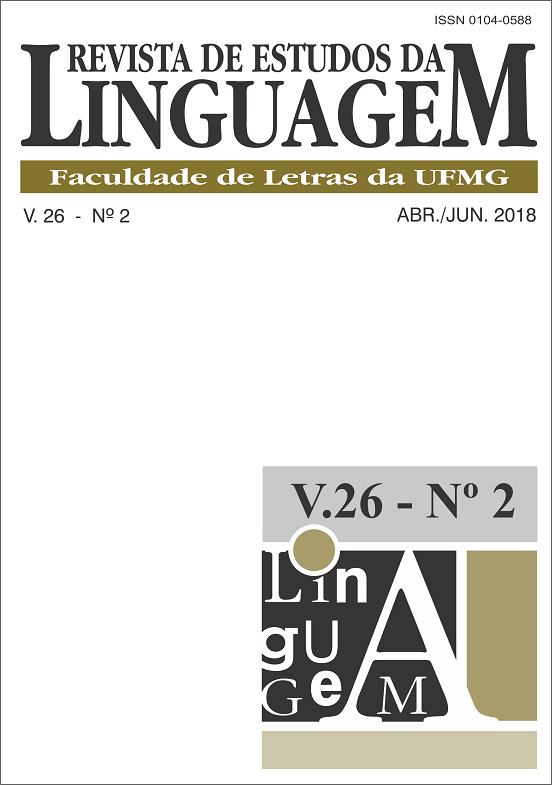Sociolinguística, teoria social e padronização linguística
DOI:
https://doi.org/10.17851/2237-2083.26.2.687-718Palavras-chave:
linguistic standardization, variacionist sociolinguistics, social theory.Resumo
Resumo: Neste artigo, questiona-se a pertinência e a relevância da sociolinguística variacionista como ciência aplicada na abordagem de questões relativas à padronização linguística no Brasil. Para isso, fez-se uma pesquisa bibliográfica dividida em dois eixos, o linguístico e o sociológico, com o intuito de compreender as bases teóricas da sociolinguística brasileira. No primeiro eixo, buscou-se compreender a natureza da sociolinguística com base nas pesquisas de Labov. No segundo, situou-se o componente propriamente sociológico da sociolinguística no contexto das teorias sociais. A análise evidenciou que a metodologia da pesquisa, no contexto da sociolinguística variacionista, é marcadamente positivista e não se coaduna com os princípios da pesquisa social contemporânea. Verificou-se ainda que a tese da ideologia dominante, elemento central da teoria social da sociolinguística brasileira, além de não exercer influência significativa na metodologia da pesquisa, já foi amplamente questionada e não exerce influência na pesquisa social contemporânea.
Palavras-chave: padronização linguística; sociolinguística variacionista; teoria social.
Abstract: In this article, we discuss the pertinence and relevance of Brazilian variationist sociolinguistics as applied science in the approach of issues related to linguistic standardization. In order to do so, we conducted a bibliographical research divided into two axes, the linguistic one and the sociological one, aiming at understanding the theoretical bases of Brazilian sociolinguistics. In the first axis, we discussed the nature of sociolinguistics taking Labov’s research as a starting point. Then, we situated the sociological component of sociolinguistics in the context of Social Theories. The analysis showed that in the context of variationist sociolinguistics, the research methodology is markedly positivist and does not conform to the principles of contemporary social research. We also observed that the Dominant Ideology Theory, a central element in the social theory of Brazilian sociolinguistics, not only did not exert significant influence in the methodology of the research works carried out in the area, but also had already been widely questioned in the context of social research and does not present satisfactory answers to the problems it is supposed to explain.
Keywords: linguistic standardization; variacionist sociolinguistics; social theory.





